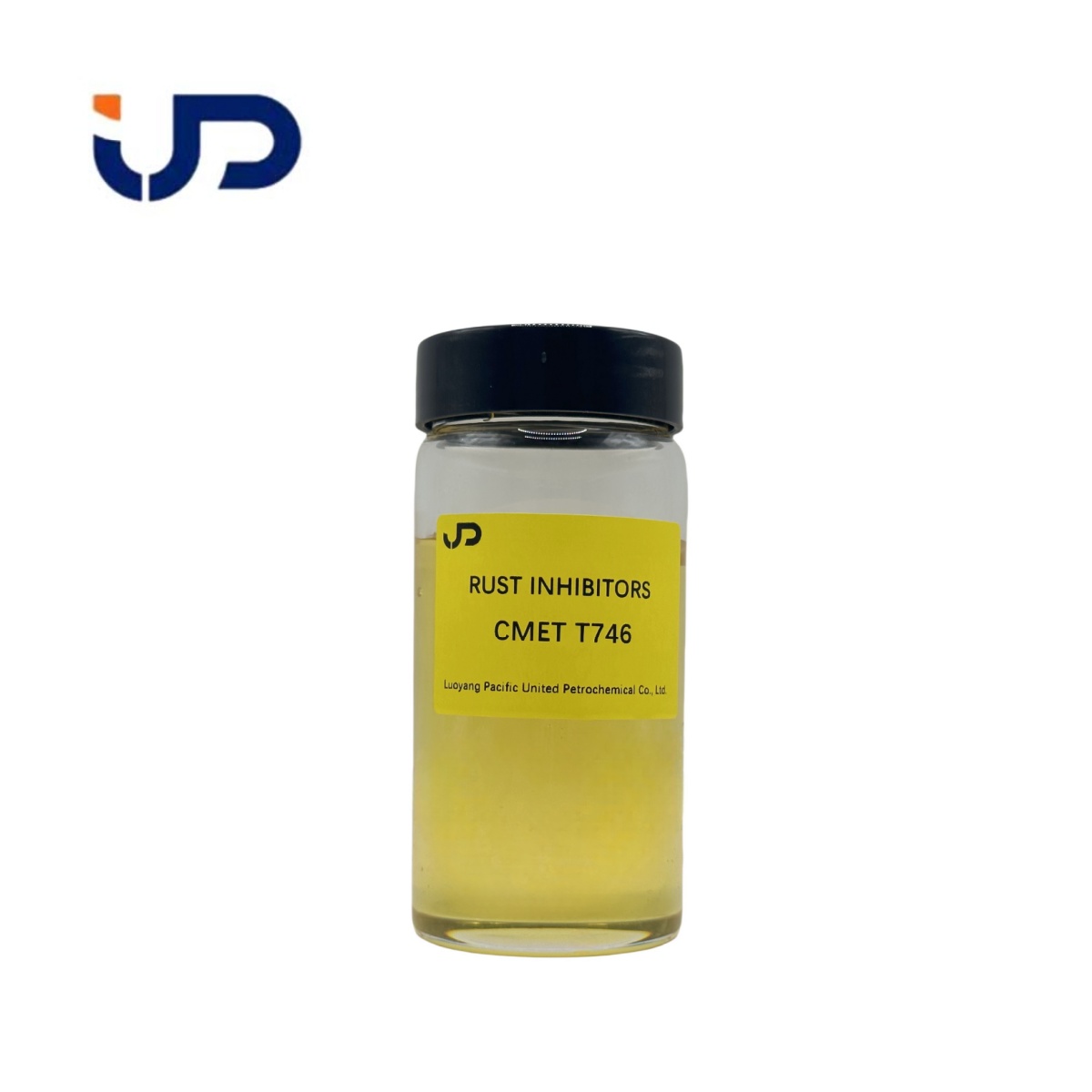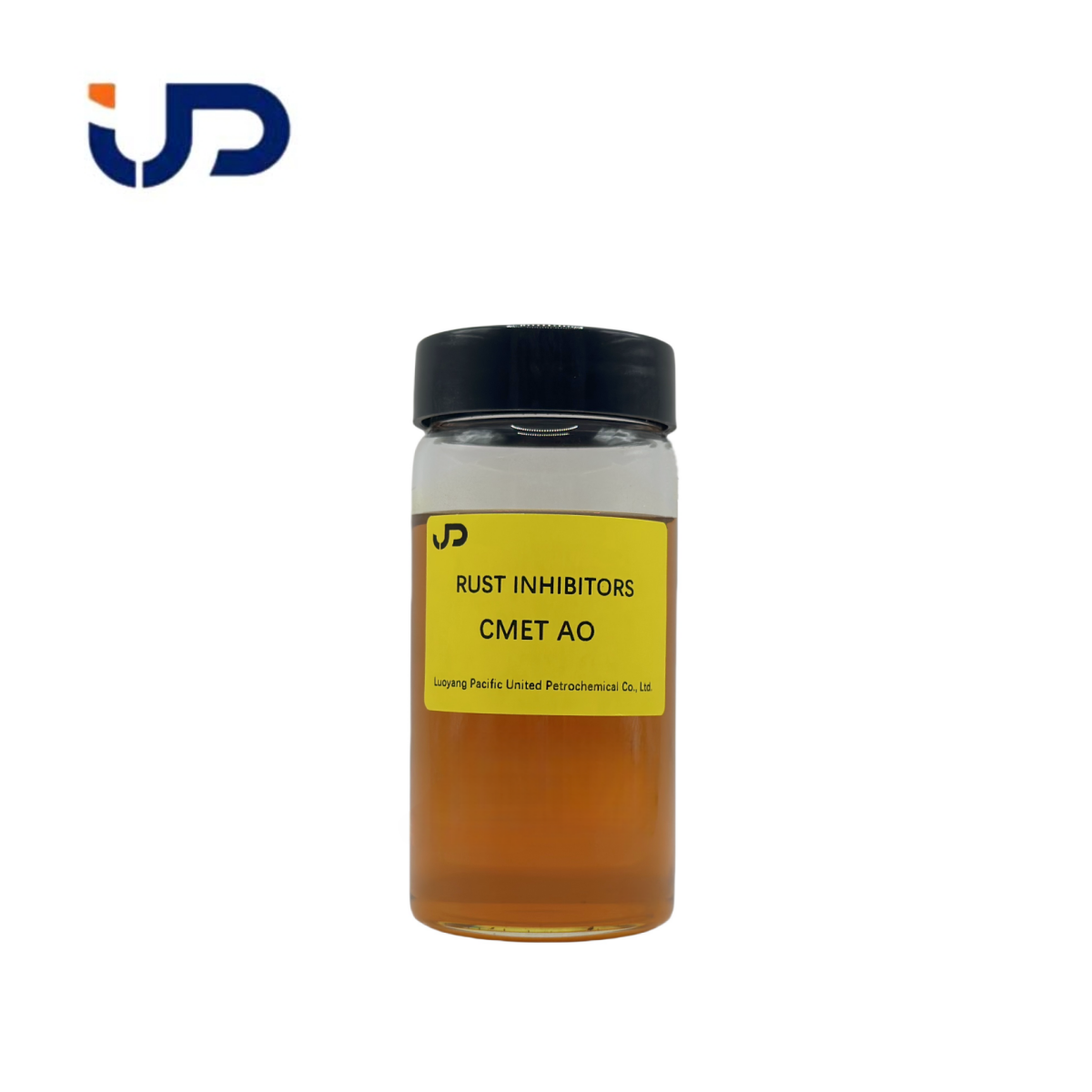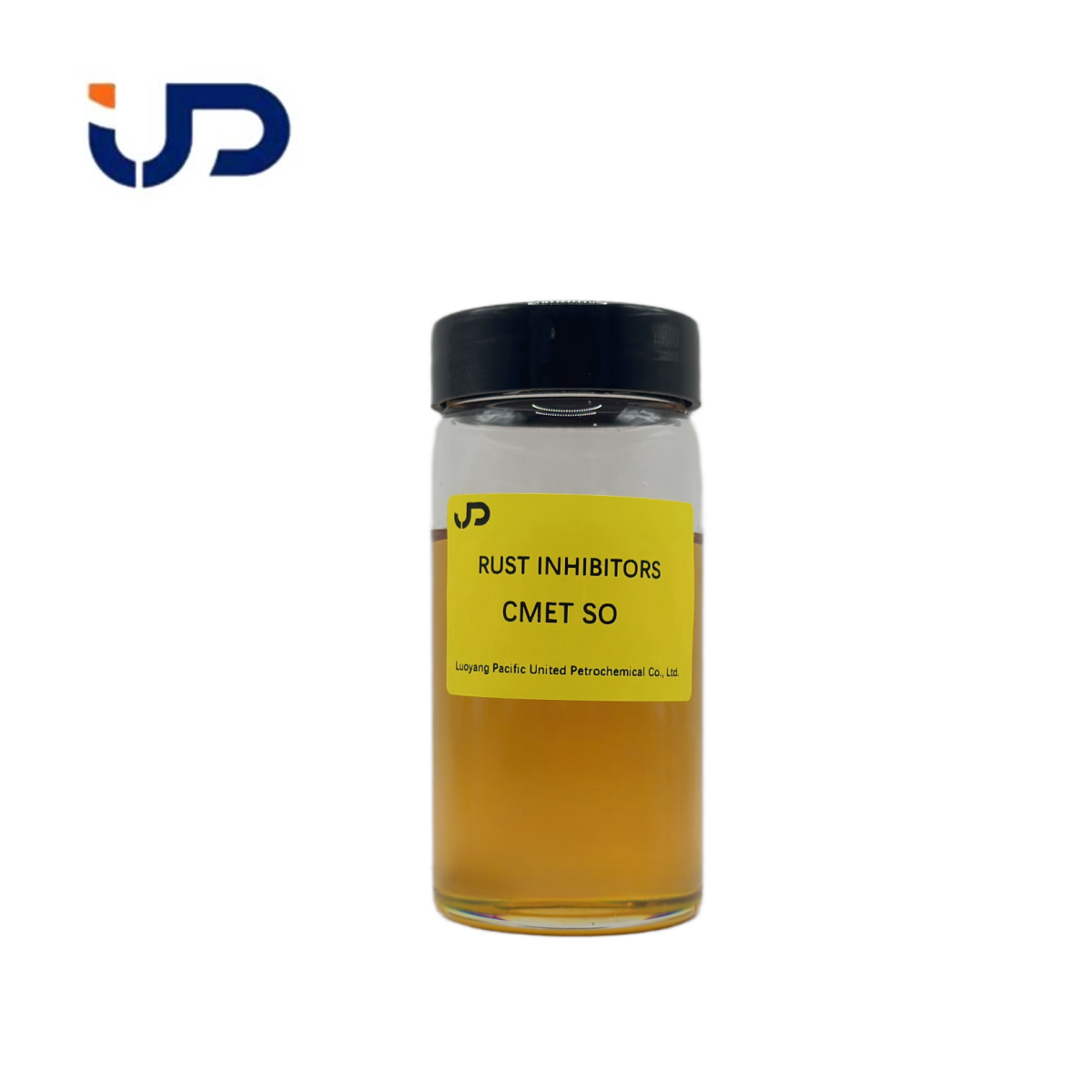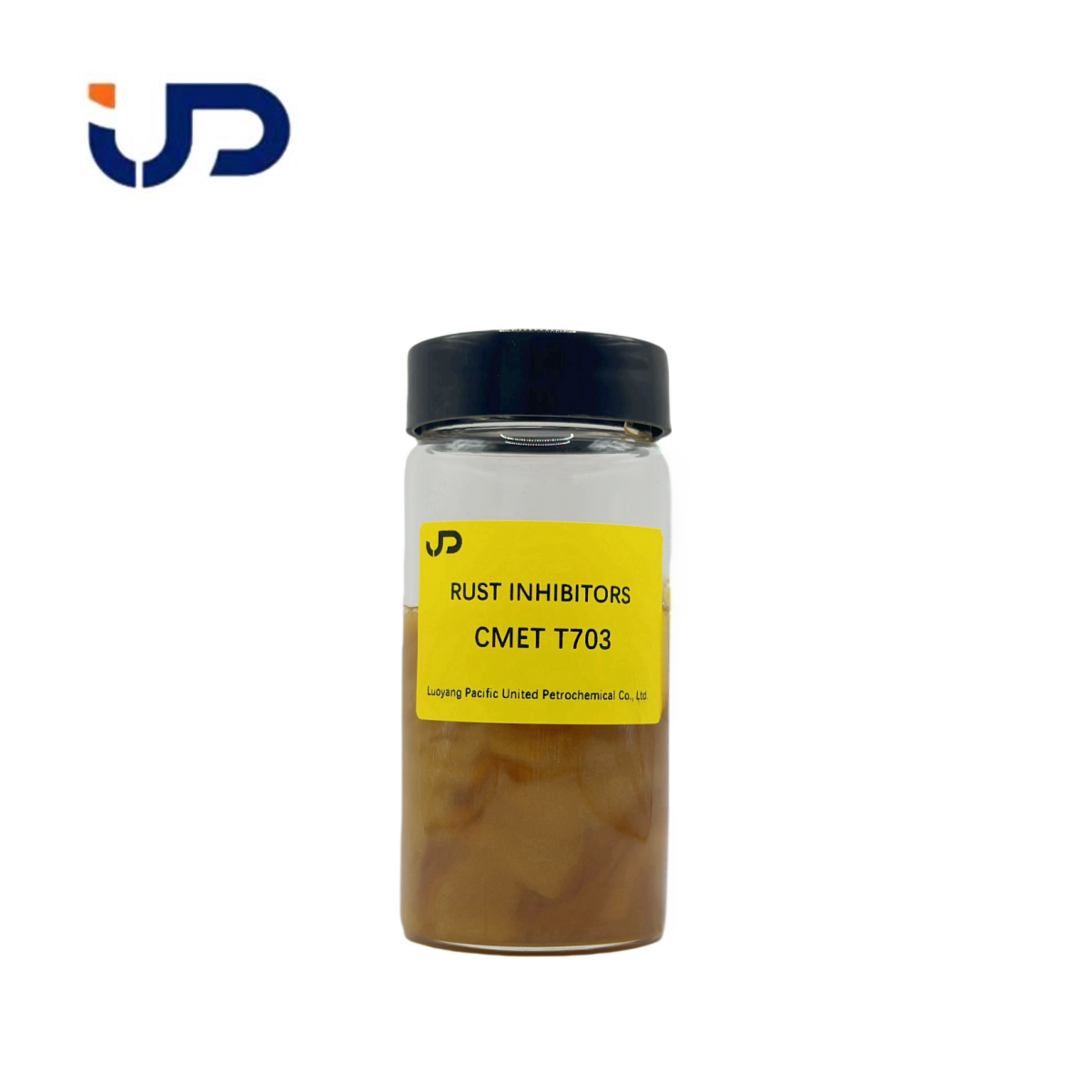UNPChemicals Rust inhibitor additives added to lubricants and industrial oil, help to prevent the corrosion of metal surfaces in contact with the oil. They form a protective film on the metal, blocking moisture and oxygen from reacting with the metal, and minimize the risk of rust formation that can lead to equipment degradation and failure. Widely utilized in engine oils, these additives are also incorporated into hydraulic oils, gear oils, metalworking fluids, and lubricants for various industrial machinery. In marine applications where equipment is constantly exposed to humid and salty environments, rust inhibitors play a crucial role in maintaining the integrity of metal components. In automotive underbody coatings and industrial storage tanks, they provide long - term protection against the harsh effects of the environment, ensuring the durability and reliability of the equipment.
Top UNPchemicals Rust Inhibitors
Popular UNPChemicals Rust inhibitor
Dodecylene succinic acid CMET T746 CAS 29658-97-7
CMET T746 is a specialized oil-soluble ashless rust inhibitor with a dodecyl succinic acid structure
Read More Get A QuoteOleic acid imidazoline corrosion inhibitor CMET AO CAS 51023-21-3
CMET T746 is a specialized oil-soluble ashless rust inhibitor with a dodecyl succinic acid structure
Read More Get A QuoteN-acyl sarcosine type corrosion inhibitor CMET SO CAS 110-25-8
N-acyl sarcosine type corrosion inhibitor CMET SO, an N-acyl sarcosine, is a corrosion inhibitor of
Read More Get A QuoteHeptadecenyl imidazoline succinate CMET T703
Heptadecenyl imidazoline succinate CMET T703 is an oil soluble ashless antirust additive made by neu
Read More Get A QuoteDodecenylsuccinic acid hemiester (class T747) CMET T747A
Dodecenylsuccinic acid hemiester (class T747) CMET T747A
Read More Get A QuoteOctadecylamine N-oleoyl Sarcosinate (T711) CMET T711
Octadecylamine N-oleoyl Sarcosinate (T711) CMET T711
Read More Get A Quote
What are rust inhibitors?
Rust inhibitors, also known as corrosion inhibitors, are chemical compounds added to fluids (such as lubricants, coolants, and water) or applied as a coating on metal surfaces to prevent, slow down, or minimize the corrosion or rusting process. They protect metal surfaces against damage, prolong component life, and maintain the overall performance of machinery and equipment.
Features of rust inhibitors
Corrosion protection: Rust inhibitors form a protective film or barrier on metal surfaces, providing an effective defense against corrosive environments.
Extend component life: By protecting metal surfaces from corrosion, rust inhibitors can extend the service life of components, reducing maintenance costs and preventing equipment failure.
Maintain performance: Rust inhibitors help maintain the functionality and efficiency of equipment by preventing or minimizing corrosion-related damage.
Application versatility: Rust inhibitors can be used in a wide range of applications, including automotive, industrial, marine, and more, to protect various metal surfaces from corrosive agents.
Types of rust inhibitors
Rust inhibitors can be broadly categorized into the following types:
Anodic inhibitors: These inhibitors work by forming a protective oxide film on the metal surface, preventing the anodic reaction. Examples include chromates, nitrates, and molybdates.
Cathodic inhibitors: Cathodic inhibitors slow down the cathodic reaction rate, minimizing the corrosion process. Examples include zinc and calcium compounds, as well as certain amines and esters.
Mixed inhibitors: These inhibitors prevent both anodic and cathodic reactions to protect metals from corrosion. An example is benzotriazole (BTA).
Vapor phase inhibitors (VPIs): VPIs are used to protect enclosed systems or packaged metal components. They release a protective vapor that forms a thin film on the metal surfaces, providing corrosion resistance.
Applications of rust inhibitors
Rust inhibitors, also known as corrosion inhibitors, are widely used across various industries and applications to protect metal surfaces and components from corrosion, which can cause damage and reduce performance. Some common applications of rust inhibitors include:
Automotive: Rust inhibitors play a vital role in maintaining the performance and appearance of vehicles, protecting components such as engine cooling systems, exhaust systems, fuel systems, and vehicle frames from rust and corrosion.
Industrial equipment: Corrosion inhibitors are used in a range of industrial equipment, including storage tanks, pipelines, heat exchangers, pumps, and valves in the oil and gas, power generation, water treatment, and chemical industries.
Lubricants: Rust inhibitors are added to lubricants, such as engine oil, gear oil, hydraulic fluids, and greases, to protect the metal surfaces of machinery from corrosion and preserve equipment life.
Marine: In the marine industry, rust inhibitors are used in coatings to protect ship hulls, ballast tanks, and other equipment from corrosion caused by exposure to harsh seawater environments. Additionally, rust inhibitors are also used in coolers and heat exchangers for marine engines.
Cooling systems: Rust inhibitors are added to cooling systems and antifreeze products for automotive and industrial applications to prevent corrosion in system components, such as radiators, engines, and water pumps.
Metalworking fluids: Rust inhibitors can be essential components in metalworking fluids, ensuring protection of machined metal parts and cutting tools from corrosion during processing, storage, and transport.
Paints and coatings: Rust inhibitors are often incorporated into paints and coatings for metals, such as bridges, pipelines, storage tanks, and structural steel, to provide long-term protection against corrosion and extend the life of the structures.
Aerospace: In the aerospace industry, rust inhibitors serve a crucial role in protecting aircraft components and systems, such as landing gear, hydraulic systems, and engines, subjected to corrosive environments and extreme operating conditions.
Electronics: To maintain performance and increase the lifespan of electronic devices and components, rust inhibitors are used to prevent corrosion on metal connectors, housings, and other parts exposed to humidity and varying temperature conditions.
These applications illustrate the importance of rust inhibitors in various industries and applications, as they prevent corrosion, reduce maintenance costs, and ensure the longevity and reliability of metal components and structures.
Price of rust inhibitors
The price of rust inhibitors can be influenced by various factors:
Type: The specific type and chemistry of the rust inhibitor can influence its cost.
Quality: The effectiveness and formulation of the rust inhibitor can impact its price.
Quantity: The purchase volume of the rust inhibitor, such as bulk purchases, may result in cost variations.
Manufacturer: Prices may differ depending on the manufacturer, their expertise, market reputation, and the quality standards they follow.
How to select rust inhibitors?
When selecting rust inhibitors, consider the following factors:
Application: Determine the specific application and the type of metal surfaces you want to protect from corrosion.
Environment: Consider the environmental conditions under which the metal will be exposed, such as humidity, exposure to salty environments, or specific chemical agents.
Ease of application: Choose a rust inhibitor that is easy to apply or incorporate into the system, whether it needs to be added to a fluid or applied as a coating.
Compatibility: Ensure the chosen rust inhibitor is compatible with the materials it will be applied to or used with, and does not adversely affect the performance or the system's integrity.
Safety and environmental impact: Opt for rust inhibitors that have lower toxicity, minimize environmental impact, and comply with relevant regulations and safety standards.
By carefully considering these factors, manufacturers and users can select the most appropriate rust inhibitors to effectively protect metal surfaces, extend the life of components, and maintain equipment performance in various applications.
Rust Inhibitors Supplier
UNPChemicals is a professional and trusted Rust Inhibitors supplier manufacturing high quality and range of Rust Inhibitors according to your workflows and products. If you are looking for high performance Rust Inhibitors solution, feel free to contact us.




